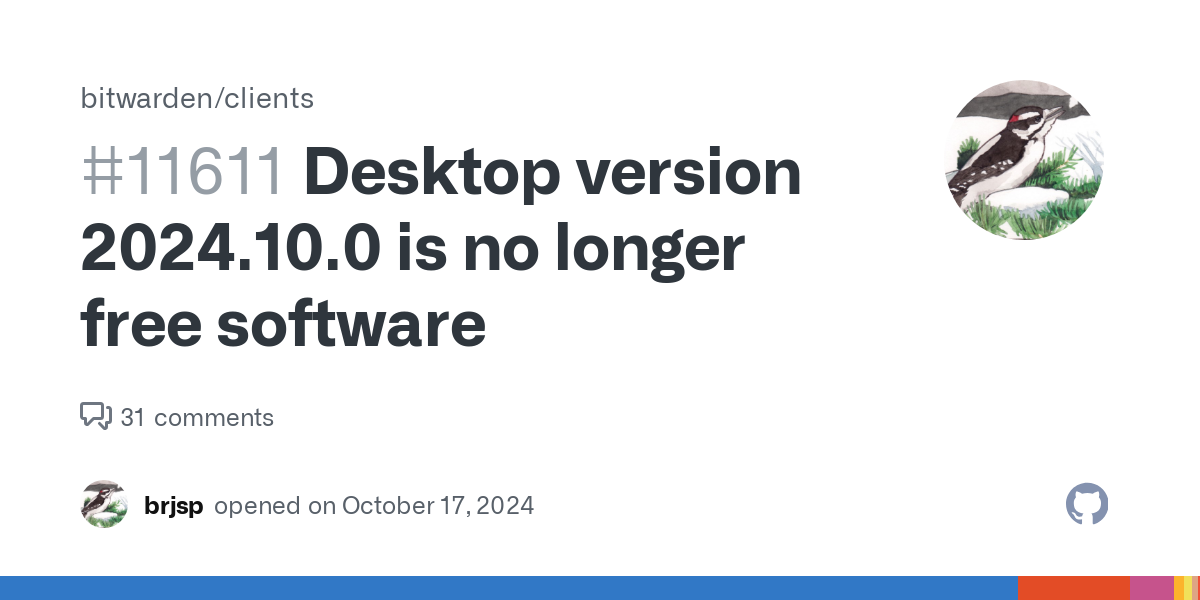- cross-posted to:
- linux@lemmy.ml
- cross-posted to:
- linux@lemmy.ml
Pull request #10974 introduces the @bitwarden/sdk-internal dependency which is needed to build the desktop client. The dependency contains a licence statement which contains the following clause:
You may not use this SDK to develop applications for use with software other than Bitwarden (including non-compatible implementations of Bitwarden) or to develop another SDK.
This violates freedom 0.
It is not possible to build desktop-v2024.10.0 (or, likely, current master) without removing this dependency.



Ok, lets take it step by step:
I think they meant executable here, but that also doesn’t matter. If both programs can only be used together and not separate, and one is under GPLv3, then the other needs to be under GPLv3 too.
How the code is structured doesn’t matter, it is about how it is consumed by the end-user, there both programs are delivered together and work together.
The way those two programs communicate together, doesn’t matter, they only work together and not separate from each other. Both need to be under GPLv3
Not being able to build a GPLv3 licenses program without a proprietary one, is a build dependency. GPLv3 enforces you to be able to reproduce the code and I am pretty sure that the build tools and dependencies need to be under a GPLv3 compatible license as well.
But all of that still doesn’t explain what their goal of introducing the proprietary SDK is. What function will it have in the future? Will open source part be completely independent or not? What features will depend on the close-source part, and which do not? Have they thought about any ethical concerns, that many contributors contributed to their software because it under a GPL license? How are they planning on dealing with the loss of trust, in a project where trust is very important? etc.
There are definitely some terminology issues here.
The SDK is not closed source, you can find the source here: https://github.com/bitwarden/sdk
It might not be GPL open-source, but it is not closed either.
Other than that, I agree with your points. I don’t agree with the kneejerk hysteria from many of the comments - it’s one of the worst things about FOSS is how quick people are to anger (I am not referring to you here).
Let’s wait and see before we get out the pitchforks.
Sure. To me “source available” is still closed-source, since looking might give companies an attack surface for you to have violated their copyright in the future. Happened with IBM in the past: https://books.google.de/books?id=gy4EAAAAMBAJ&lpg=PA15&pg=PA15&redir_esc=y#v=onepage&q&f=false
Sure. Bitwarden doesn’t owe us anything, but it is still sad to see this decision and better clarification and explanation could have alleviated the breaking of the trust here.